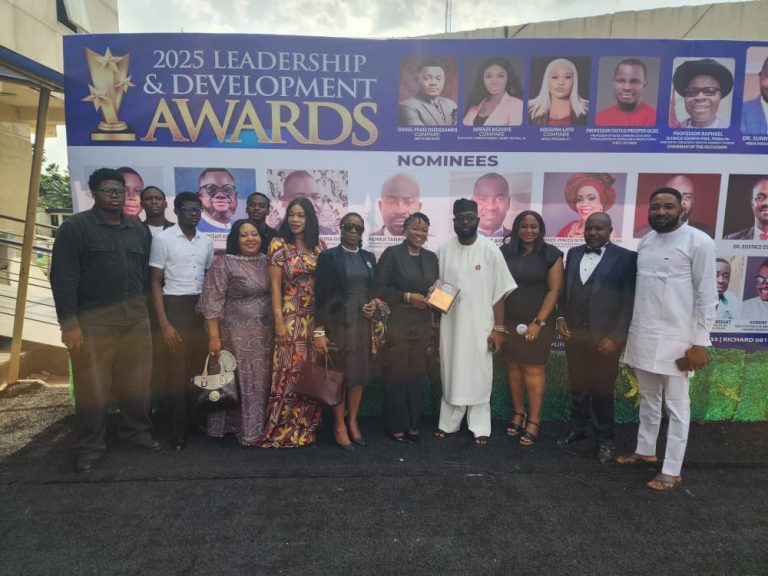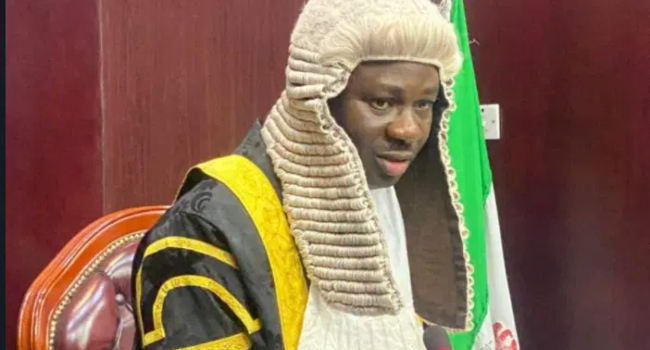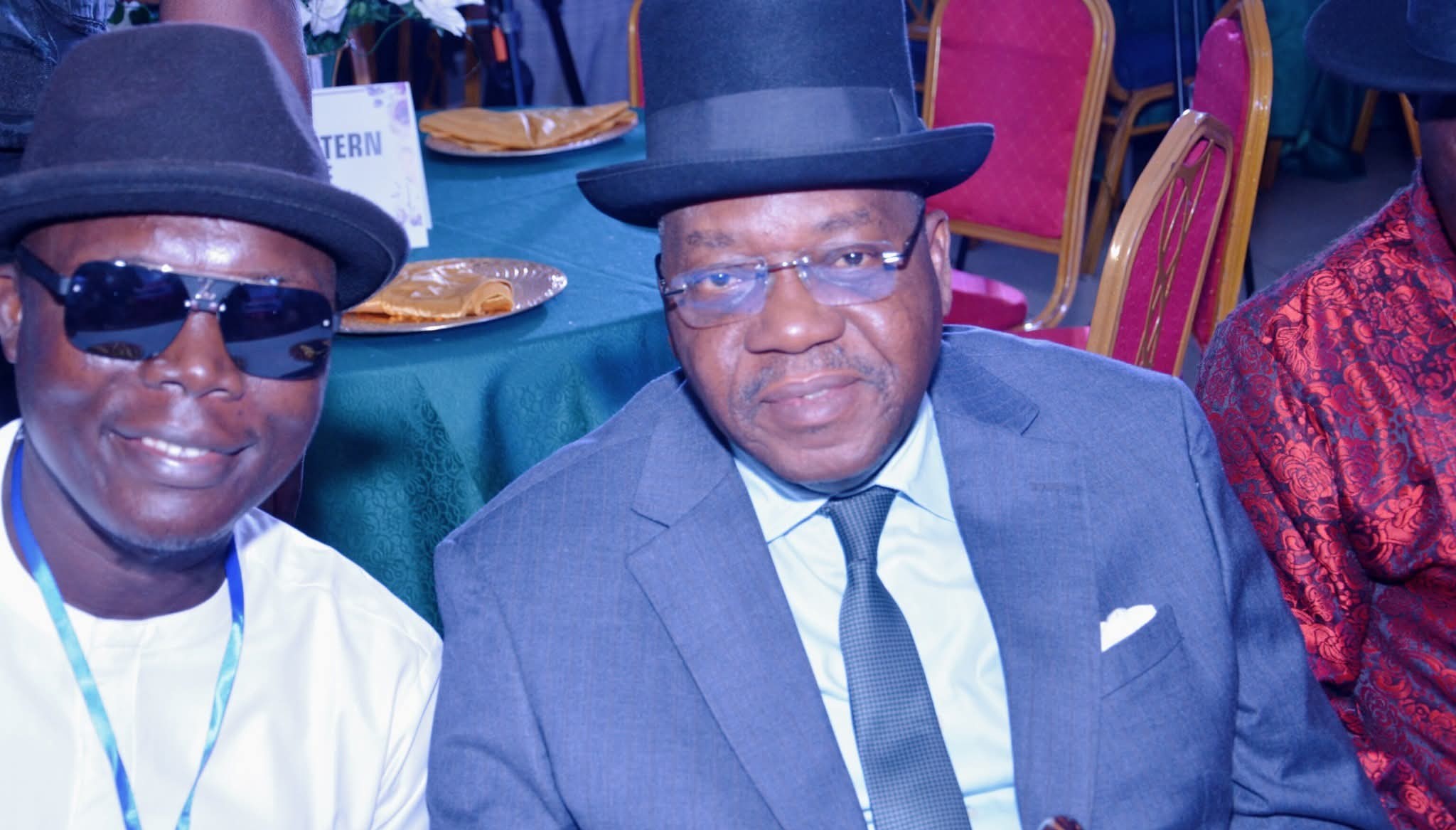News
BREAKING: Niger Coup Leader, Tchiani Agrees To Dialogue With ECOWAS

Niger Republic coup leader, General Abdourahmane Tchiani has agreed to dialogue with the Economic Community of West African States (ECOWAS) after his meeting with Nigerian Islamic Scholars led by the national leader of Jama’atu Izalatil Bid’ah Wa Iqamatus Sunnah (JIBWIS), Sheikh Abdullahi Bala Lau in Niger Republic.
According to Niger Republic’s Prime Minister, Ali Mahamane Lamine Zeine, General Tchiani gave the green light for talks with ECOWAS and was optimistic the talks with ECOWAS would take place in the next few days.
“We have agreed and the leader of our country has given the green light for dialogue. They will now go back and inform the Nigerian President what they have heard from us…. we hope in the coming days, they (ECOWAS) will come here to meet us to discuss how the sanctions imposed against us will be lifted,’’ he said.
READ ALSO: Nigeria Fighting ‘Wars’ Within, Fresh One Not Needed – Pastor Adeboye
Meanwhile, a report published in Voice of Nigeria (VON) stated how the Nigeria’s Intervention Team, which included notable Islamic scholars from the country, met with the coup leaders in Niger over the weekend, and all parties decided to strengthen the option of dialogue in resolving the country’s political problem.
The Islamic Ulammas led by Sheik Bala Lau was said to have met with General Abdourahmane Tchiani for several hours in Niger’s capital Niamey during which they deliberated on all the issues including the demand by ECOWAS leaders that former President Bazoum be reinstated.
Bala Lau, who is the National Chairman of Jamatul Izalatu Bida Waikamatu Sunnah, said the clerics were in Niger on behalf of President Bola Tinubu who accepted their request to intervene.
Sheik Lau said the team had earlier told President Tinubu who is also the Chairman of Authority of ECOWAS Heads of State and Government that their position is that the political impasse in Niger is resolved through dialogue.
READ ALSO: West African Countries Suspend Key Military Meeting On Niger Coup
He, therefore, told General Tchiani that the visit to Niger was to engage in constructive dialogue to encourage him and other military leaders behind the coup to toe the path of peace instead of war to resolve the crisis. Responding, General Tchiani who accorded the team warm reception welcomed their intervention. He said their doors were open to explore diplomacy and peace in resolving the matter.
General Tchiani, however, said it was painful to the coup leaders that the ECOWAS leaders did not hear their side of the matter before issuing ultimatum to them to quit office.
He claimed the coup was well intended, stating that they struck to starve off an imminent threat that would have affected not only Niger Republic but also Nigeria.
He also apologised for not according the team sent by President Tinubu led by former Head of State, General Abdulsalami Abubakar (rtd) the required attention because they were angry about the ECOWAS ultimatum.
News
Coordinator, Edo First Lady Office, Majority Leader, Rights Lawyer, Others Bag 2025 Leadership Award

The Coordinator, Office of the First Lady, Edo State, Mrs. Edesili Okpebholo Anani; Majority Leader, Edo State House of Assembly, Hon. Jonathan Aigbokhan, and human rights lawyer, President Aigbokhan, alongside 27 others were on Friday , December 19, 2025, honoured with the 2025 Leadership & Development Award.
In his welcome address at the event with the theme: ‘Empowering Tomorrow’s Leaders: Innovating for a Sustainable Future,’ Team Lead, Leadership and Development Initiatives, Dr. Sunny Duke Okosun, said the initiative was to recognise and celebrate the outstanding contributions of individuals and organizations that are shaping the future of “our world.”
Okosun, who said the awardees were not just selected for award sake, noted that “our awardees have demonstrated exceptional leadership, innovation, and commitment to making a positive impact in their respective fields. Their stories will inspire us, their achievements will motivate us, and their dedication will challenge us to strive for greatness.”
The Team Lead, while expressing his organisation’s
commitment to identifying, recognizing, and empowering leaders who are making a difference, said “we also look to the future, recognizing that the leaders of tomorrow will be those who innovate, collaborate, and prioritize sustainability.”
READ ALSO:Vanguard Correspondent Bags Edo Icon Award 2025
Okosun, who congratulated the awardees on “your outstanding achievements,” stressed: “Let us continue to inspire, motivate, and challenge each other to be the leaders we need for a brighter tomorrow.”
In her keynote address, Anani described the theme of the event as timely and profound, stressing that “it speaks directly to the urgent need to prepare our present and future generations with the skills, values, and mindset required to navigate an increasingly complex world.”
The Coordinator, who noted that “a sustainable future demands leaders who are conscious of the environment, committed to social inclusion, and driven by economic responsibility,” challenged: “Leadership in our time must go beyond titles and positions; it must be anchored on service, innovation, integrity, and a clear vision for sustainable development. Leadership empowerment begins with education, mentorship, and opportunity.”
She added: “When we invest in our young people by equipping them with knowledge, encouraging creativity, and providing platforms for growth we are laying the foundation for enduring progress. Innovation, in this context, is not limited to technology alone; it also includes innovative thinking in governance, entrepreneurship, social development, and community engagement.
READ ALSO:Ballon d’Or: Why Neymar Didn’t Win Award – Gerard
“A sustainable future demands leaders who are conscious of the environment, committed to social inclusion, and driven by economic responsibility. It calls for leaders who can balance progress with preservation, growth with equity, and ambition with compassion. As a society, we must therefore foster innovation that addresses real challenges, creates jobs, strengthens communities, and improves the quality of life for all.”
Guest Speaker at the event, Prof. Festus Olise, described leadership as a curse to Nigeria, adding: “Year in, year out, we elect leaders into leadership positions yet our problems persist.”
Majority Leader of the Edo State House of Assembly who happened to be one of the recipients, thanked the organisers, stressing that it is a challenge for him to do more for his people.
“I have done much for my constituents since I was elected, but the award will spure me to do more. Leadership is about catering for the followers, and this is a role I have been playing to the best of my ability.”
News
Delta Speaker Advocates Strict Legislative Protection Of N’Delta Environment

The Speaker of the Delta state House of Assembly Hon. Emomotimi Guwor has advocated for more stringent legislations to protect the Niger Delta environment against violators, especially multinational and local oil companies.
He lamented that these multinational and local oil companies have turned the Niger Delta environment to dumping sites with the pollution of oil exploration and exploitation.
Guwor spoke at the 2nd annual Ijaw media conference 2025, organized by the Ijaw Publishers’ Forum, IPF in Delta State.
According to him, this will curb further damages of the Niger Delta environment, thereby saving the environment for future generations.
READ ALSO:Delta: Suspected Kidnapper Killed In Gun Battle With Police
The Delta state speaker, who was represented by a former Commissioner for Oil and Gas, Chief Emma Amgbaduba, noted that environmental neglect and social injustice were key drivers of unrest in oil-producing areas.
According to him, ”fishermen and farmers are in acute hunger and hardship due to the polluted rivers and degraded farmlands have pushed many families into hardship, threatening livelihoods that once sustained entire communities”
He warned that unless urgent steps are taken to protect natural resources, the human cost of oil exploration would continue to deepen poverty and insecurity in the region, with consequences for the national economy.
READ ALSO:Panic In Delta Female School Over False Herdsmen Attack
Guwor emphasized that host communities must demand strict compliance by international and indigenous oil companies with global environmental standards and the Petroleum Industry Act (PIA).
He noted that environmental neglect and social injustice were key drivers of unrest in oil-producing areas.
Guwor urged residents to take ownership of environmental protection in their communities, while acknowledging ongoing efforts to curb crude oil theft, which he said has worsened pollution and economic losses.
The Speaker stressed that peaceful coexistence within communities remained critical to restoring confidence, attracting investments and improving living conditions in the Niger Delta.
News
IPF’s Conference: Igali Seeks Approval Of License For Locals To Operate Modular Refinery

The National Chairman of Pan Niger Delta Forum,( PANDEF) Amb. Godknows Boladei lgali, has appealed to President Bola Ahmed Tinubu to approve license for Niger Delta sons and daughters who have the requirements to operate modular refineries as it is done in the US and the Western world.
Dr. Igali who was the keynote speaker at the 2025 Ijaw Media Conference made the call on Wednesday December 17, in Warri.
He stated that the operation of modular refineries was for the best interest of increasing the growth of the nation’s economy as well as to create a sense of belonging to the people that own the crude oil and gas.
He said that it is important for the people to properly manage their God-given resources towards the welfare of humanity rather than being destroyed in the name of illegal oil bunkering.
READ ALSO:IPF Holds Annual Ijaw Media Conference December
by government security agencies thereby resulting in pollution and degradation of the environment they lived in.
He asserted that most of the raw materials used by industries are deposited in the Niger Delta region, especially crude oil, Gas, palm oil, rubber, cotton etc, stressing that the region will continue to be relevant in Nigeria because of her natural wealth.
He affirmed that Niger Deltans should think of sustaining its natural resources as well as safeguarding its environment for today and the future generations.
READ ALSO:IPF Throws Weight Behind Otuaro-led PAP, Urges Critics To Be Constructive
He urged the people to be more focused on education and professional skill acquisition, stressing that with the right education and skills, the scholars can invent new things that will better the society.
Igali also commended the Presidential Amnesty Programme Coordinator, Dr. Dennis Otuaro for his good works, while urging him not to be distracted by critics rather, he should continue sending “our sons and daughters abroad to acquire more skills and come back home to develop the Niger Delta region.”
He also urged Niger Deltans to sustain the existing peace, stressing that without peace development cannot strive in the communities.

 Metro5 days ago
Metro5 days agoSuspected Kidnappers Abduct 18 Passengers On Benin-Akure Road

 News5 days ago
News5 days agoI’m Not Distracted By Anti-Niger Delta Elements, Says PAP Boss, Otuaro

 News5 days ago
News5 days agoOPINION: Time For The Abachas To Rejoice

 Sports4 days ago
Sports4 days agoJUST IN: Dembélé Named FIFA Best Men’s Player, Bonmatí Wins Women’s Award

 News4 days ago
News4 days agoWage Dispute: Court Orders PSG To Pay Mbappe €61 Million

 News5 days ago
News5 days agoEdo Assembly Charges Contractor Handling Ekekhuan Road To Accelerate Work

 Headline4 days ago
Headline4 days agoAircraft Crashes In Owerri With Four Persons Onboard

 Metro5 days ago
Metro5 days agoNDLEA Seizes 457kg of Cannabis, Arrests Suspected Trafficker In Edo

 Business4 days ago
Business4 days ago9th FirstBank Digital Xperience Centre Launched In UNIBEN

 News5 days ago
News5 days agoEx-Nigerian Amb., Igali, To Deliver Keynote Address As IPF Holds Ijaw Media Conference
































